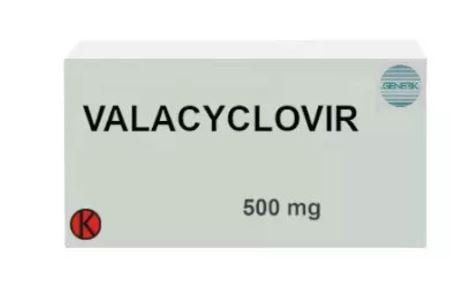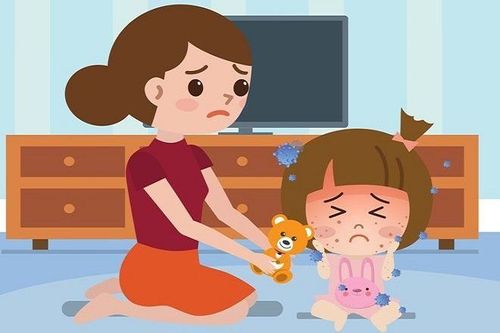This is an automatically translated article.
The article was professionally consulted with Master, Doctor Nguyen Tung Hoanh- Department of Resuscitation - Emergency - Vinmec Nha Trang International General Hospital.Shingles is caused by a reactivated chickenpox virus, which usually occurs many years after the initial chickenpox episode. After recovering from chickenpox, these viruses "hibernate" and wait for the opportunity to reactivate causing shingles, also known as shingles.
1. What is chickenpox?
Chickenpox is a disease caused by the 'herpes zoster' or 'Varicella-Zoster' virus. The disease can be mild in children and more severe in adults.People with chickenpox will have typical symptoms such as:
Sudden low-grade fever, runny nose, feeling unwell in general and skin rash. Usually the redness starts as small clusters and turns into blisters and scabs. The rash appears 3-4 days. At any given time, the sores of the rash change according to different stages of development. Usually, symptoms appear within 2 weeks of being exposed to the virus. Most people recover without complications, but sometimes chickenpox can lead to more serious complications, such as pneumonia and encephalitis. In rare cases, it can be fatal. Chickenpox is an infectious disease that can be spread by normal people through the following ways:
The virus spreads when an infected person coughs Direct contact with the blisters Easily spreads to people who have never had chickenpox, Previously vaccinated person is contagious for one or two days before the rash develops (i.e. during the runny nose phase) and possibly up to five days later (when the blisters appear). crusted). People who have had chickenpox, the body will create immunity, so it is rare to get chickenpox a second time. Therefore, anyone who has never had chickenpox is at a higher risk of spreading it than anyone else.

Người đã mắc bệnh thủy đậu, cơ thể sẽ tạo ra sức đề kháng miễn dịch
2. What is shingles?
Shingles is also caused by a reactivated chickenpox virus, which often occurs many years after the initial chickenpox episode. After recovering from chickenpox, these viruses "hibernate" and wait for the opportunity to reactivate causing shingles, also known as shingles. Shingles with a rash resembling chickenpox, causes burning pain over an area of the skin, develops along the path of a nerve, usually on one side of the body. The burning and tingling pain associated with the redness may persist for weeks or months after the redness has disappeared. This is called post-herpetic neuralgia (post-herpetic neuralgia).The virus that causes shingles is easily transmitted through direct contact with the redness of an infected person, especially someone who has never had chickenpox, has not had a suppressed immune system to the disease.
3. How are chickenpox and shingles related?
Thus, it can be concluded that chickenpox is a precursor to shingles. If not treated properly, shingles or chickenpox both cause dangerous complications for the patient. In particular, shingles can lead to complications such as conjunctivitis, corneal inflammation, uveitis, rectal urinary disorders, facial paralysis, encephalitis, meningitis. The scariest complication is pain after shingles, which is common in elderly people with dry, thin skin. This is a persistent pain that follows the skin after the blisters have healed (4-6 weeks), very difficult to treat. Patients suffer from constant pain such as stabbing, cutting flesh, lasting several months, several years or a lifetime.4. How to prevent chickenpox and shingles?

Cách hiệu quả nhất để phòng ngừa thủy đậu là tiêm phòng thủy đậu
Children under 12 months of age should be vaccinated against chickenpox Adolescents 14 years of age and older are not immune to the disease needed 2 doses of the vaccine, 1 to 2 months apart. People at risk for chickenpox such as healthcare workers, people living or working with young children, women planning to become pregnant and people with suppressed immune systems living in close contact with an infected person should be vaccinated. sick . People with chickenpox should stay away from others People with chickenpox should cover their nose and mouth when coughing and sneezing, wash their hands thoroughly, and do not share food and drink with normal people Pregnant women and children with high immunity poor resistance should stay away from people with chickenpox This helps to maximize the first prevention of chickenpox, then minimize the risk of shingles later by the existence of the active virus again .
You can go to Vinmec International General Hospital for advice, scheduling and vaccination against chickenpox in order to prevent the disease in the safest and most effective way.
All biological products and vaccines at Vinmec are of clear origin; preserved on the cold chain according to strict standards of the Ministry of Health and the World Health Organization. Customers are examined and screened before injection, and their health is monitored after injection to ensure the highest safety and effectiveness of vaccination.
Please dial HOTLINE for more information or register for an appointment HERE. Download MyVinmec app to make appointments faster and to manage your bookings easily.













